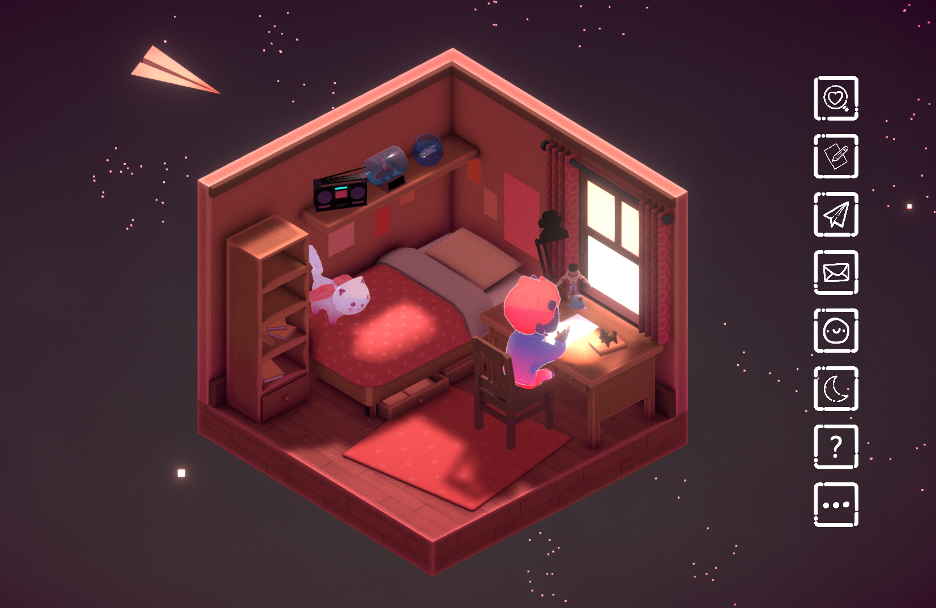Video games often receive criticism for promoting toxic communities and hate-filled chats, but Kind Words offers something unique: An environment where gamers can lend a helping hand and seek input from peers. In a time of isolation, this friendly game has become a means of correspondence for thousands of people across the world.
Kind Words is a growing network of anonymous people offering or seeking support and spreading positivity. Unlike social media, which consumes its users’ attention with an endless feed and stream of notifications, Kind Words encourages mindfulness in each action: The player’s avatar sits at their desk and from there, they decide whether to write a request or respond to other gamers’ requests. Paper airplanes, which can be opened when clicked, are used to deliver positive thoughts and messages to other users. A virtual deer explains the game, makes announcements, and delivers the letters.
The purpose of the game is not to meet people or make connections. There is no back-and-forth; once someone responds to a letter, they can receive a virtual sticker as a thank you, but they will never even know who sent it. The term “game,” in a traditional sense is a misnomer: There are no levels, challenges, or skills to learn, as instead its progression system consists of collecting stickers from others and using them to decorate your avatar’s room.
Kind Words has created a safe space for its users, where anonymity encourages each player to speak about whatever comes to mind, whether personal or lighthearted. The game’s relaxed atmosphere and lo-fi soundtrack lulls its users. The conversation requests cover a wide range of topics, from stress and burnout in school to relationship issues.
Students make up the majority of the game’s playerbase. In an interview with The McGill Tribune, Ziba Scott, the developer of Kind Words, explained why he believes the platform is popular for students.
“The student years of most people’s lives are often their most influential on their identities,” Scott said. “[It’s] a time in their life filled with a larger rotating cast of characters [….] Kind Words is a good fit for those kinds of mental [and] emotional exercises.”
While the game’s encouraged vulnerability sounds like a perfect invitation for trolls, Kind Words has done a great job keeping them at bay—in over four months of gameplay, I have yet to come across any. The game’s moderation tools and report mechanisms help to combat cyberharassment, but for Scott, the user interface of the game inherently prevents trolling.
“The structure of information flow in Kind Words makes it more like a river than a soup,” Scott said. “Most communication is directly between users and is one-way only. A shitty comment on YouTube sticks around, floats to the top and upsets everyone. In Kind Words, it washes away, seen by very few people, if any.”
The sort of vitriol Scott alludes to regarding YouTube comments are, in part, the inspiration behind the game. With a growing culture of political polarization and hate on social media, Scott and Luigi Guatieri, Kind Words’s designer, hope that the game will offer an escape centred on mindfulness and compassion.
“Lots of factors [pushed us to develop the Kind Words], but at the core of it was that it felt like a worthy use of our time in an increasingly cruel world,” Scott said.
For students experiencing the effects of social distancing or school burnout, Kind Words is worth exploring. With so much of our lives anchored in social media’s frenzy, the game’s tranquil atmosphere and low-commitment gameplay provides a much needed break. Currently, Scott does not intend to bring the game to a mobile platform because he feels it important to have a focussed and seated environment when playing.
Kind Words is exclusively available on Steam and costs $5.69.










